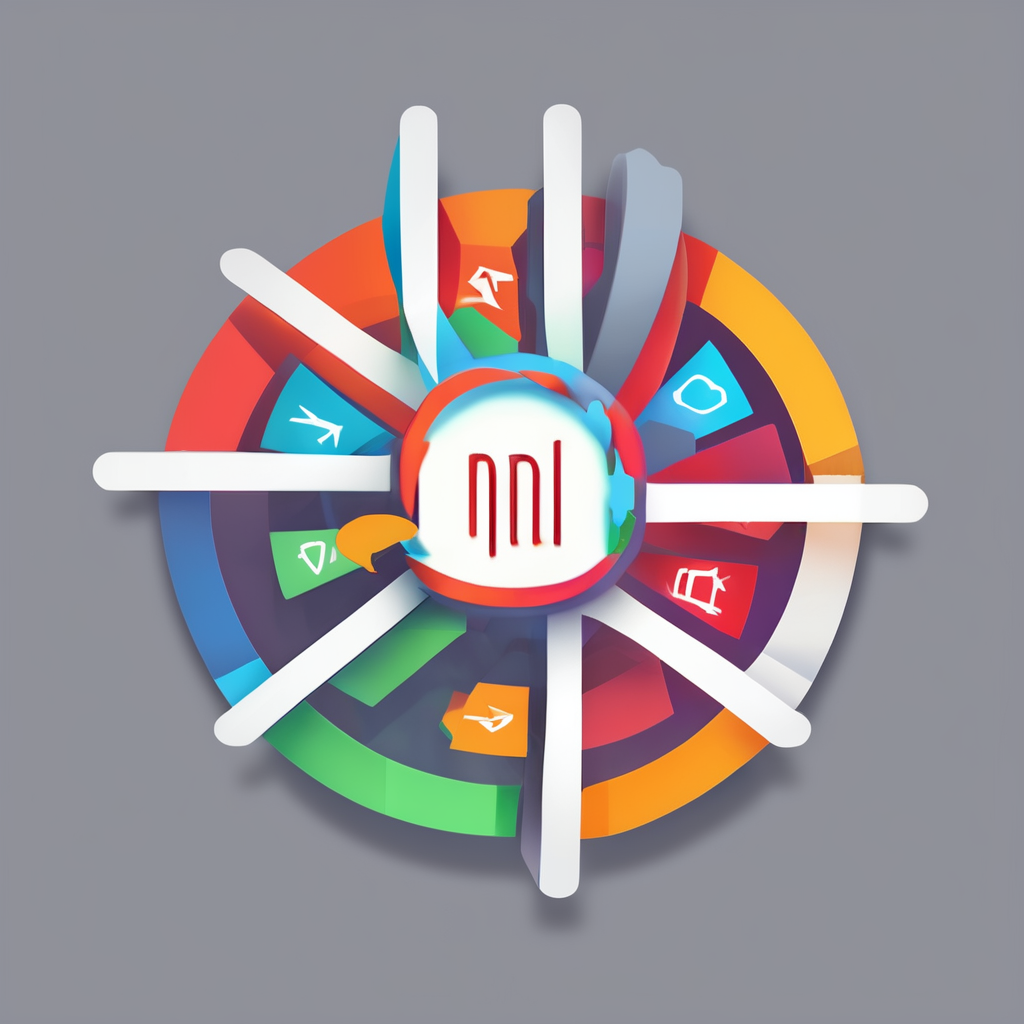Understanding Time Management Principles
Understanding time management is crucial in successfully balancing gaming with daily responsibilities. Prioritization plays a significant role in enhancing productivity. Effectively prioritizing tasks helps in allocating appropriate time to both gaming and other life obligations. To achieve this, start by listing all tasks and assessing their importance and urgency. This forms the foundation of a structured schedule and ensures that critical activities are not neglected.
One effective strategy is prioritization through a method such as the Eisenhower Box. This tool categorizes tasks into four quadrants based on their urgency and importance, allowing you to manage your time efficiently. Another technique involves time allocation assessment by tracking how much time is spent on different activities throughout the day. This reveals patterns and areas where adjustments might be needed.
Also to read : Showcasing your gaming prowess: unlocking the power of social media promotion
Balancing gaming sessions with everyday duties requires a disciplined approach. By establishing clear boundaries and sticking to scheduled times for gameplay, you can enjoy your hobby without it becoming a burden. Ensuring that gaming doesn’t interfere with essential responsibilities is key to maintaining a harmonious lifestyle. Embrace these time management principles, and you will find clarity and efficiency in your daily routine.
Setting Realistic Goals
Establishing realistic goals is crucial for maintaining a balanced lifestyle, especially when gaming is a significant part of it. Goal setting often begins with the creation of SMART goals—those that are Specific, Measurable, Achievable, Relevant, and Time-bound. These help define clear gaming objectives alongside personal ambitions. For instance, setting a goal to reach a certain level in a game within a specific timeframe can coexist with academic or work-related objectives.
Also to read : Discover today’s top-rated game development tools: which ones lead the pack?
Short-term goals may focus on immediate achievements, like completing a game level or finishing a project by the deadline. In contrast, long-term objectives might include mastering a new game or earning a promotion at work. By specifying timelines and measures of success for each, you can better track progress.
Adjusting goals as responsibilities change is equally important. Life events, such as starting a new job or moving homes, may necessitate realigning your objectives. Flexibility in goal setting allows for shifts in focus and resources, ensuring that gaming remains a fulfilling activity without overshadowing essential responsibilities. This adaptability encourages a dynamic approach to goal setting, catering to both your gaming and personal life smoothly.
Creating an Effective Schedule
Crafting a well-structured schedule is fundamental in managing time effectively. Implementing a time-blocking method allows for designated periods dedicated to specific activities, including gaming and daily duties. By visually segmenting the day, you create a clear outline of when tasks should occur, helping to reduce instances of procrastination or overlap.
Incorporating this method involves mapping out all commitments, such as work, study, and relaxation. Allocate specific blocks of time for each, ensuring routine development aligns with your priorities. Such organization not only enhances time management but also ensures you dedicate focused sessions to gaming without interrupting essential duties.
Maintaining flexibility within your schedule is equally vital, as unexpected responsibilities or opportunities may arise. Adaptation is key, and allowing room for adjustments can prevent stress and maintain balance. Flexibility ensures you can adapt your routine to accommodate changing needs without disrupting overall productivity.
Consistently refining your scheduling approach maximizes time use, leading to a harmonious blend of gaming and daily life commitments. Tools like calendars or planner apps can aid in tracking these time blocks, ensuring adherence to your well-structured plan.
Utilizing Productivity Tools
Leveraging productivity apps can significantly enhance time management and task organization. Popular tools such as Todoist or Trello provide efficient ways to create and manage task lists, streamlining daily activities. These tools can help prioritize responsibilities, ensuring that both gaming and personal commitments are well accommodated.
Recommended apps for time management
Selecting apps that cater to your unique task management needs is crucial. Apps like Notion offer customizable interfaces for everything from scheduling to project tracking. Integration capabilities with calendars and reminders ensure you keep up with daily duties without overlooking gaming sessions.
How to automate tasks
Automation is a key feature of modern productivity apps, reducing manual input by automating routine activities. Tools like Zapier can link different apps, minimizing repetitive tasks and freeing up time for more engaging pursuits such as gaming.
Tracking progress and adjusting workflows
Consistently tracking progress through these apps allows for regular assessments of your routines. When apps provide detailed analytics, adjusting workflows becomes easier, leading to improved efficiency. Frequent evaluations of progress offer insights into adapting strategies for a balanced and productive lifestyle, maximising both gaming and personal achievements without compromise.
Implementing Strategies for Long-term Success
Developing lasting habits is key to achieving longevity in both personal pursuits and gaming. Habit formation begins with identifying daily routines that support a balanced lifestyle. Techniques like setting regular reminders to foster consistency or maintaining a daily journal to track progress can reinforce positive behaviours.
Sustained balance is achieved by regularly evaluating and adjusting strategies. For instance, if increased responsibilities at work are impacting gaming time, consider revising your schedule to integrate both efficiently. Flexibility in your approach can help accommodate evolving priorities without losing focus on your goals.
Regular reflection on personal gaming habits plays a crucial role in this process. Taking time to assess your gaming routine ensures it aligns with other life commitments, preventing potential imbalances. Adjustments become natural as you recognize patterns affecting productivity and wellbeing.
Lastly, maintaining habit formation requires motivation, which can be bolstered by celebrating small victories. When you successfully incorporate a new routine, acknowledge your progress. This encouragement cements new habits, promoting sustained success over time in both gaming and everyday responsibilities.
Finding Balance and Moderation
Achieving a work-life balance is crucial for ensuring that gaming and life obligations coexist harmoniously. Moderating gaming sessions prevents them from overwhelming daily activities, promoting a healthy lifestyle.
Healthy habits play a role in balancing gaming. Incorporating exercise into your routine can enhance both physical and mental health. Regular physical activity stimulates endorphin production, which boosts well-being and reduces stress levels. Similarly, engaging in social interactions, like spending time with friends or family, enriches life experiences outside gaming.
The concept of balance extends to recognising the psychological benefits of moderation in gaming. It encourages cognitive flexibility, problem-solving skills, and stress relief. However, excessive gaming can lead to adverse effects, such as reduced productivity or social withdrawal. Striking the right balance is essential to reap gaming’s benefits without negative repercussions.
Finally, embedding balanced gaming habits involves self-awareness and discipline. Taking action when noticing unhealthy patterns ensures that gaming remains an enjoyable, stress-free activity. Setting limits, such as scheduling breaks or setting time constraints, can help maintain this balance, contributing to a fulfilling and sustainable gaming lifestyle.
Personal Experiences and Insights
Balancing gaming and responsibilities often comes with unique challenges. Sharing anecdotes from fellow enthusiasts can prove enlightening and motivational. One gamer recounted how transitioning to a demanding job shifted their gaming routine significantly. Initially overwhelmed, they adjusted by gradually integrating habit formation practices, such as setting reminders to take short gaming breaks during downtime, thus maintaining a balance.
Life lessons learnt often highlight the importance of not allowing one aspect of life to overshadow others. Those who found equilibrium often did so through trial and error, learning to prioritize and compartmentalize their time. These stories resonate deeply, providing valuable insights and demonstrating that balance is both challenging and achievable.
Inspirational stories abound, such as the competitive gamer who overcame burnout by embracing sustained balance. They learned to limit gaming sessions to healthier durations, incorporating meditation and exercise into their routine. This created a more holistic lifestyle, proving that moderation and discipline are crucial to long-term success.
These shared experiences and insights stress the importance of understanding your needs, setting realistic boundaries, and remaining open to adaptation. Embracing these lessons can transform your approach to gaming and life, fostering personal growth and satisfaction.






